#kim seong-su
Explore tagged Tumblr posts
Text









Yu Min-hyuk - Full House
#yu min-hyuk#yu min-hyuk icons#yu min hyuk#yu min hyuk icons#full house#full house icons#kim seong-su#kim seong-su icons#kim seong su#kim seong su icons#icons#icon#twitter icons#random icons#icons without psd#site model icons#dorama#dorama icons
6 notes
·
View notes
Text




no shortage of freaks in this show. i love it
#im rewatching s1 and i forgot how sad it is#first i laughed but then i serioused#squid game#squid game 2#squid game season 2#seong gi hun#gi hun#player 456#hwang in ho#young il#player 001#front man#the front man#gi hun x in ho#thanos squid game#choi su bong#player 230#nam gyu#player 124#thangyu#kim jun hee#player 222#lee myung gi#player 333#the salesman#art#fanart#my art#egg art#artists on tumblr
2K notes
·
View notes
Text
Squid Game text posts because I love this show ( pt 1 )
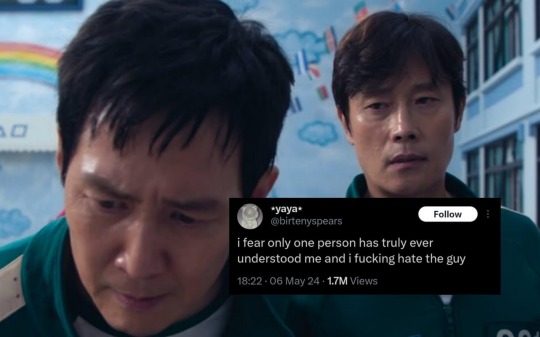
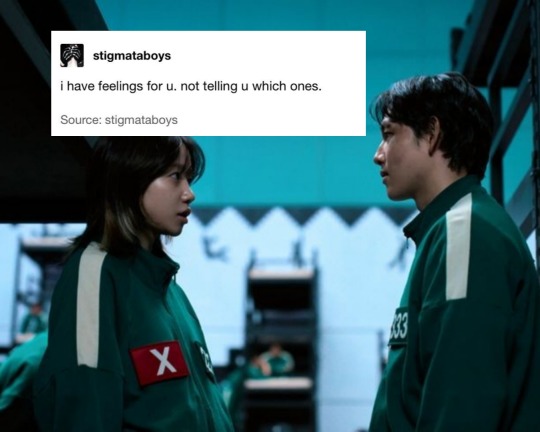
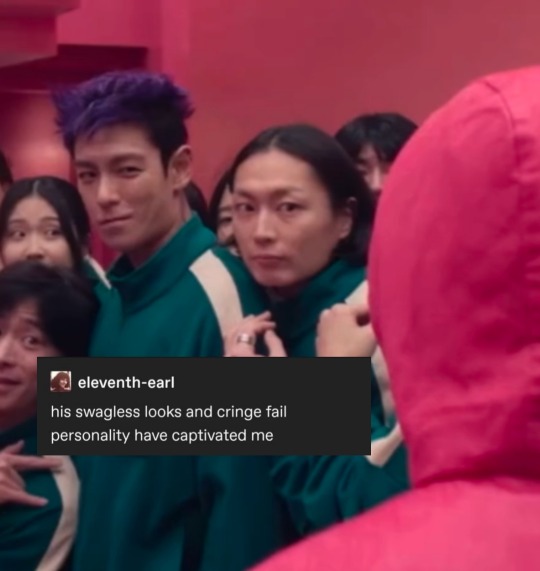
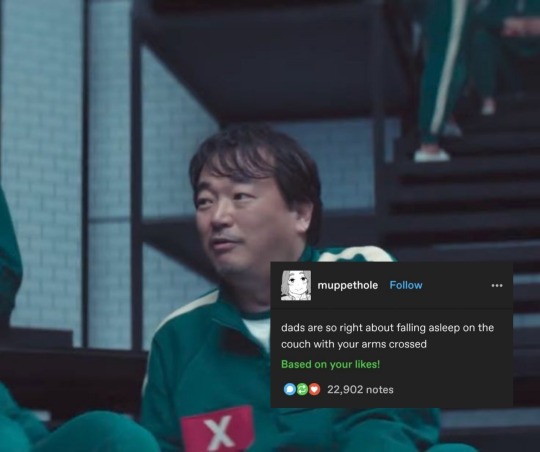
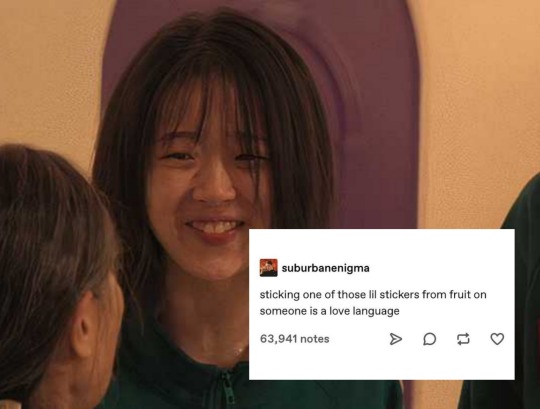
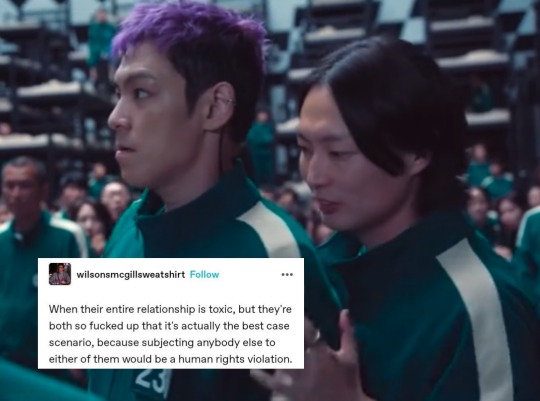
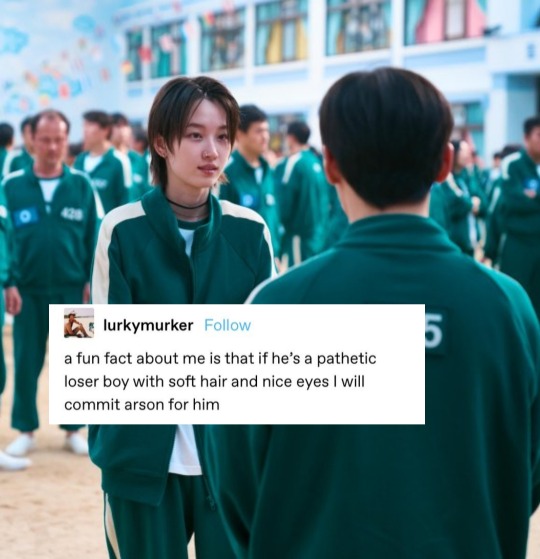
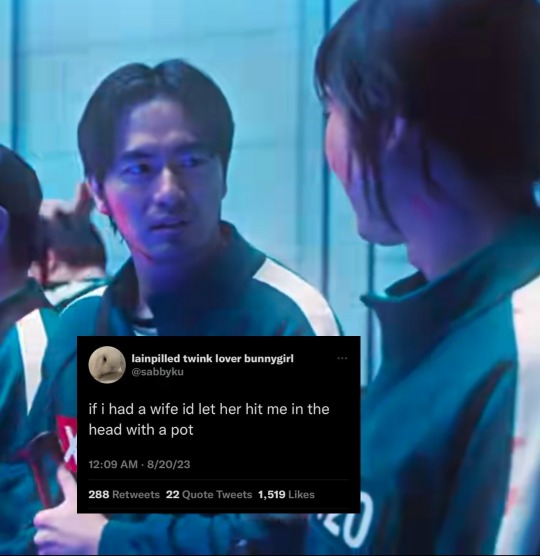

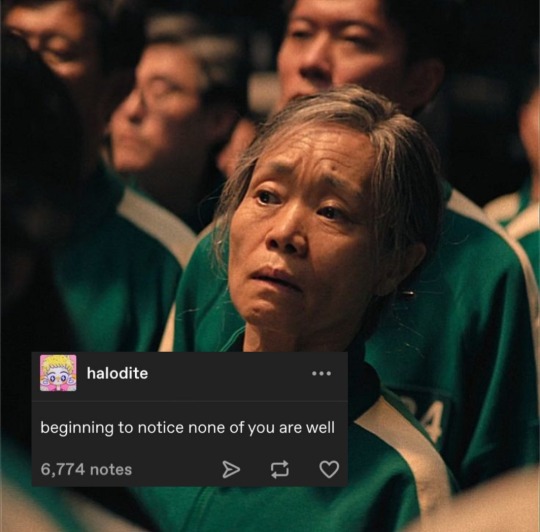

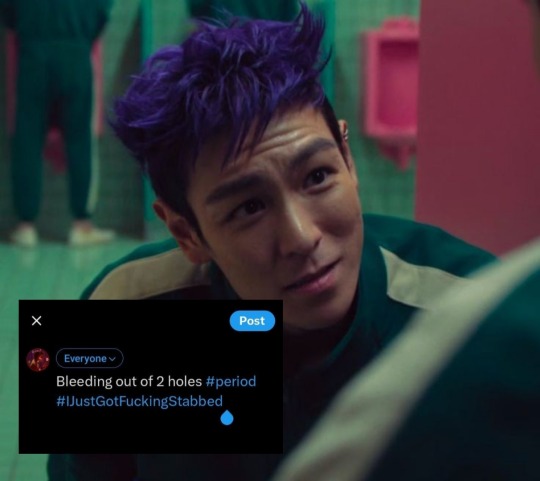
#squid game#squid game 2#seong gi hun#gi hun#gi hun x in ho#hwang in ho#in ho#kim jun hee#lee myung gi#jun hee#myung gi#choi su bong#thanos#nam gyu#thangyu#se mi squid game#min su#kim young mi#young mi#jung bae#park jung bae#park gyeong seok#cho hyun ju#jang geumja#not tagging everyone's numbers#squid game spoilers#squid game 2 spoilers
2K notes
·
View notes
Text
ever since joining the squid game fandom back in the olden days of 2021, ive seen gihun be shipped with:
sangwoo
inho
junho
ali
oh ilnam
the salesman
deoksu
mr kim
jungbae
the pink guards
his ex-wife's new husband
if he interacts with a male character in any way, shape or form, trust he WILL be shipped with them
#squid game#seong gi-hun#cho sang-woo#hwang in-ho#hwang jun-ho#ali abdul#oh il-nam#the salesman#jang deok-su#kim jeong-rae#inhun#sangihun#gihun x junho#gihun x ali#gihun x the salesman#this is a genuinely insane list of characters like nfidjebcfidks#ddakhun#junhun#gihun's harem#deokhun
499 notes
·
View notes
Text
i feel like someone already did this for squid game but whatever. silly messily made squid game ship meme thing

#whew that's a lot of characters/ships to tag#nyeosu#457#salesjun#sangihun#junofficer#hyunmi#docsu#thangyu#don't ask why i put them for daddy issues idek#jang deok-su#han mi-nyeo#seong gi-hun#hwang in-ho#hwang jun-ho#the recruiter#cho sang-woo#player 070#player 069#se-mi#kang no-eul#masked officer#kim young-mi#cho hyun-ju#byeong-gi#thanos#nam-gyu#squid game#squid game 2#s0dabeach post
301 notes
·
View notes
Text
Valentine’s Day with squid game characters <3

Seong Gi-hun x reader, The salesman x reader, the frontman x reader, Kang Sae-byeok x reader, Cho Sang-woo x reader, Hwang Jun-ho x reader, Kim Jun-hee x reader, Lee Myung-gi x reader, Kang Dae-ho x reader Thanos x reader, Nam-gyu x reader, Park Min-su x reader
Summary: What each squid game character would do for their significant other on Valentine’s Day.
~•~•~•~•~•~•~•~•~•~•~•~•~•~•~•~•~•~•~•~•~•~•~
Seong Gi-hun (456)
Gi-hun would go for something simple but heartfelt. If he’s struggling financially, he might cook a homemade meal or surprise his partner with a small but meaningful gift—maybe something nostalgic that reminds them of a happy memory. He’d definitely write a heartfelt note, even if it’s a little messy.
~•~•~•~•~•~•~•~•~•~•~•~•~•~•~•~•~•~•~•~•~•~•~
The Salesman (the recruiter)
A smooth talker and a man of mystery, he’d turn Valentine’s Day into an experience—maybe a surprise trip, a luxurious dinner, or even a playful challenge where his partner has to “earn” their gift. Expect expensive, elegant presents and a perfectly planned evening.
~•~•~•~•~•~•~•~•~•~•~•~•~•~•~•~•~•~•~•~•~•~•~
The Front Man (Hwang In-ho)
He wouldn’t be flashy about it, but he’d make sure his partner feels special. Maybe he leaves a single red rose and a handwritten note somewhere they’ll find it, or he arranges a quiet, private dinner where he actually opens up a little—for once.
~•~•~•~•~•~•~•~•~•~•~•~•~•~•~•~•~•~•~•~•~•~•~
Kang Sae-byeok (067)
Not one for grand gestures, Sae-byeok would show her love in quiet, meaningful ways—maybe cooking for her partner, lending them her jacket if they’re cold, or just spending the whole day with them, listening more than talking. If she gives a gift, it’ll be simple but deeply sentimental.
~•~•~•~•~•~•~•~•~•~•~•~•~•~•~•~•~•~•~•~•~•~•~
Cho Sang-woo (218)
Sang-woo would approach Valentine’s Day like a business deal—strategic, polished, and well-planned. He’d book a high-end restaurant, buy an expensive but classic gift (think jewelry or a designer item), and make sure everything goes perfectly. He wouldn’t be overly affectionate, but his actions would show he cares.
~•~•~•~•~•~•~•~•~•~•~•~•~•~•~•~•~•~•~•~•~•~•~
Hwang Jun-ho (The Detective)
Jun-ho would be the type to remember everything his partner has ever mentioned wanting, and he’d use that to create the perfect, thoughtful surprise. Whether it’s a rare book, their favorite flowers, or a quiet getaway, he’d make sure the day feels meaningful.
~•~•~•~•~•~•~•~•~•~•~•~•~•~•~•~•~•~•~•~•~•~•~
Kim Jun-hee (222)
Tough and independent, she’d act like Valentine’s Day isn’t a big deal—but she’d still put effort into making it special. She might cook dinner, surprise her partner with something thoughtful (but act like it was “no big deal”), or plan a relaxed but intimate night together.
~•~•~•~•~•~•~•~•~•~•~•~•~•~•~•~•~•~•~•~•~•~•~
Lee Myung-gi (333)
He’s not the type to be overly romantic, but he’d still try. He’d take his partner out for barbecue and drinks, making sure they have a fun, laid-back night. If they wanted something more sentimental, he’d grumble about it—but he’d still go out of his way to make them happy.
~•~•~•~•~•~•~•~•~•~•~•~•~•~•~•~•~•~•~•~•~•~•~
Kang Dae-ho (388)
Sweet but a little shy, Dae-ho would overthink his Valentine’s Day plans, wanting everything to be perfect. He’d probably go for a classic, heartfelt approach—flowers, chocolates, and maybe a picnic date. If his partner likes surprises, he’d do his best to plan something cute.
~•~•~•~•~•~•~•~•~•~•~•~•~•~•~•~•~•~•~•~•~•~•~
Thanos (Choi Su-bong)
Flashy and confident, he’d go all out—matching outfits, a surprise performance (probably a rap dedicated to his partner), an expensive dinner, and an over-the-top gift. He’d love posting about it and making sure everyone knows his partner is spoiled.
~•~•~•~•~•~•~•~•~•~•~•~•~•~•~•~•~•~•~•~•~•~•~
Nam-gyu (124)
He’d probably forget it was Valentine’s Day until the last minute, then panic-buy whatever’s left at the store. If his partner calls him out, he’d make up an excuse like, “I was waiting for the perfect moment,” and then promise to make it up to them.
~•~•~•~•~•~•~•~•~•~•~•~•~•~•~•~•~•~•~•~•~•~•~
Park Min-su (125)
Shy and awkward, Min-su would nervously give his partner a heartfelt but clumsy love letter, then plan a quiet date, like watching the sunset, but he’d be too anxious to enjoy it fully.
~•~•~•~•~•~•~•~•~•~•~•~•~•~•~•~•~•~•~•~•~•~•~
A/n: happy Valentine’s Day pookies 😙 I’ll be spending the day with Captain America in cinema… so slay for me 💪🏻💪🏻
#squid game#squid game x reader#squid game x y/n#squid game x you#squid game season 1#squid game season 2#seong gi hun#seong gi hun x reader#the salesman#the salesman x reader#the front man#the front man x reader#kang sae byeok#kang sae byeok x reader#cho sang woo#cho sang woo x reader#hwang Jun ho#hwang jun ho x reader#kim junhee#kim junhee x reader#lee myung gi#lee myung gi x reader#kang dae ho#kang dae ho x reader#thanos#thanos x reader#nam gyu#nam gyu x reader#park min su#park min su x reader
215 notes
·
View notes
Text
Squid Game Masterlists

Mercenary Kim Do-Hyun Masterlist

Cho Sang Woo Masterlist

Park Min-Su Masterlist

Choi Woo-Seok Masterlist

Kang Dae-Ho Masterlist

Hwang Jun-Ho Masterlist

Nam-Gyu Masterlist

Seong Gi-Hun Masterlist

Cho Hyun-Ju Masterlist

Park Gyeong-Seok Masterlist

Choi Su-Bong (Thanos) Masterlist

Hwang In-Ho Materlist
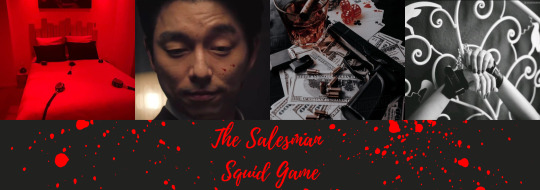
The Salesman Masterlist

Gyeong-Su Masterlist
#squid game#squid game x reader#squid game 2#squid game fanfic#squid game x you#squid game season 2#squid game smut#the salesman x reader#kang dae ho x reader#park gyeong seok#park min su#park min su x reader#seong gi hun x reader#seong gi hun#cho hyun ju x reader#cho hyun ju#choi su bong#choi su bong x reader#choi woo seok x reader#hwang in ho x reader#hwang in ho#nam gyu x you#nam gyu x reader#kim do hyun x you#mercenary kim#cho sang woo x you#cho sang woo x reader
345 notes
·
View notes
Text
#disclaimer: this is a joke#tumblr polls#squid game#squid game season 2#squid game s2#squid game netflix#hwang in ho#seong gi hun#young il#thanos#choi su bong#hwang jun ho#kim junhee#iz*one#park yongsik#min su squid game#se mi#jung bae#gyeong su#gi hun#kang no eul#kang sae byeok#ali abdul#cho sang woo#the salesman#the recruiter#gong yoo#train to busan#squid game cast#squid game fandom
81 notes
·
View notes
Text
Survival Rate of Squid Game Characters
Prediction for season 3.

Gi-hun,Player 456
80% Will survive, risk of suicide during capture
Cho Hyun-ju, Player 120
70% Will survive, could be part of more protests, risk of getting shot/injured
Lee Myung-gi, McCoin, Player 333
50% Would risk his life for the baby if it comes to it.
Kim Jun-hee, Player 222
100% possible solo (+ baby) Survivor
Kang Dae-ho, Player 388
20% Probably sacrifices himself bc of his guilt/failure
Park Yong-sik, Player 007 and Jang Geum-ja, Player 149
0% Both die in the games, possible sacrifice/suicide
Nam-gyu and Park Min-su
0% Kills Min-su, gets killed for it
Hwang Jun-ho and Hwang In-ho
20% Dramatic finale between them again, one of them or both of them could die at each others hands.
Choi Woo-seok
50% assist in freeing of the others, could be killed during it
Kang No-eul, Guard 011
100% assist the others, survives and goes back to North Korea to find her kid
#squid game#squid game 2#squid game 3#seong gihun#cho hyunju#lee myung gi#kim junhee#kang dae ho#park yongsik#jang geumja#nam gyu#park min su#hwang in ho#hwang jun ho#choi woo seok#kang no eul
71 notes
·
View notes
Text
SQUID GAME RESTAURANT HCS
heyy this is literally a ripoff of @yurozo’s resident evil restaurant au but with squid game instead, hope you enjoy! go check hers out too it’s gold :)
this has got like…..every character i had even a semblance of a headcanon for LMAO (i’m sorry young mi and ji yeong fans 💔)
i am also sorry if this is inaccurate to actual restaurant roles and stuff, this is all for shits and gigs 🫶
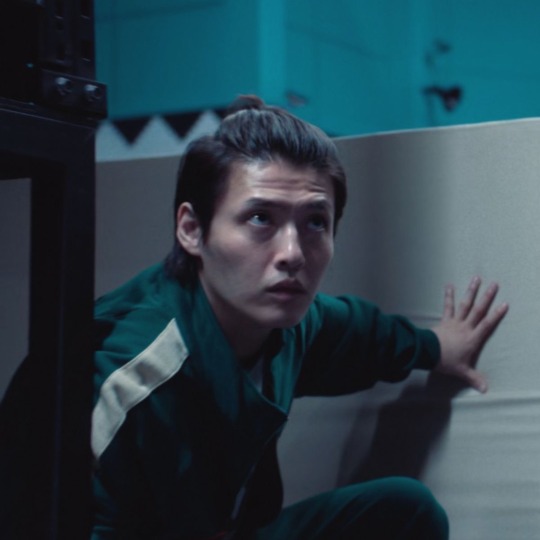
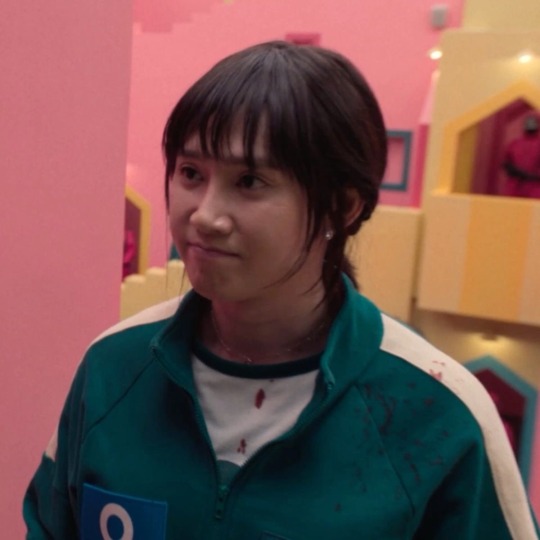
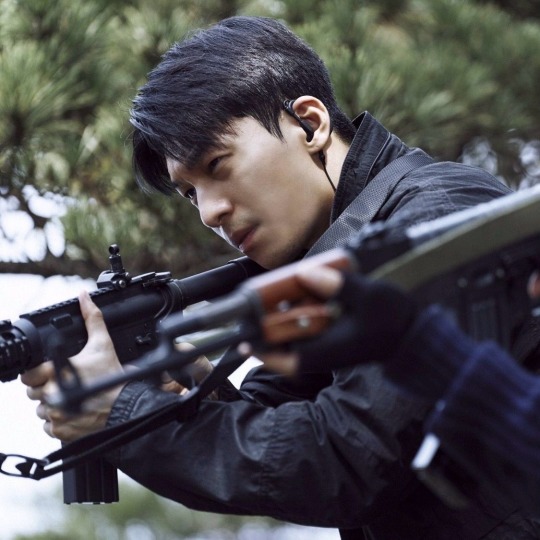
ali abdul (player 199)
ali is a cook. he’s genuinely happy to be there all the time and never messes up a dish. everyone feels good about their days at work when ali is there because he sort of acts as everyone’s rock. he also has a stash of snacks for employees on their breaks, and remembers everyone’s birthday and gives them gifts.
cho hyun-ju (player 120)
hyun-ju is a hostess. a bit quiet but very sweet and people often leave great reviews because of her. she tends to be a little blunt when telling people about their wait times but no one’s ever complained about it.
cho sang-woo (player 218)
sang-woo is a manager. he mostly takes care of budgeting and handling vendors. rarely is seen anywhere but his office and by the back wall of the building when he’s taking his smoke breaks. he once caught su-bong with his vape back there but didn’t say anything to anyone because he was too damn tired.
choi su-bong (thanos, player 230)
su-bong is a cook. he tried to bring his vape in once and nearly got beat up by jung-bae. also tried to seize control of the speaker to play his own music and nearly got beat up by woo-seok. su-bong is surprisingly a decent cook. gi-hun definitely had his doubts about hiring him due to past…incidents, but his cooking makes up for it. he’s the best at dessert!
choi woo-seok (found the salesman in s2)
woo-seok has control of the speaker in the kitchen. he insists he can’t cook without a good track. at first he was very intense about his music, but eventually relented and let everyone but su-bong add a few songs to his playlist.
han se-mi (player 380)
se-mi is a waitress. she doesn’t make very much small talk and rarely if ever looks happy to be there but for some reason old people love her, so whoever happens to be the host on her shifts puts old people in her section. she pretends to be exasperated with this when talking to fellow employees but secretly doesn’t mind it.
hwang in-ho (frontman, player 001 s2)
in-ho owns the restaurant. he rarely comes in but when he does it's all hands on deck and everyone better be in line. even su-bong tends to shape up when in-ho's around. he's just got that kind of vibe.
hwang jun-ho (policeman)
jun-ho is the head waiter. people tend to think in-ho gave him the job just because he’s his little brother but jun-ho is genuinely good at this thing. takes no shit and will pull aside waiters who make mistakes to help/lecture them.
jang geum-ja (player 149)
geum-ja comes in every week when yong-sik is working so he can cook for her, since it’s almost always been the other way around. everyone looks forward to when she comes by because she’s basically everyone’s mom. brings everyone gifts around holidays and birthdays!
kang dae-ho (player 388)
dae-ho is the bartender. he is friendly and sweet and makes seriously good drinks. he frequently gets peoples’ numbers slipped to him on cocktail napkins because LOOK AT THE GUY. he also will make sure his marine tattoo is showing if creeps are bothering folks and will intervene if situations escalate. sometimes su-bong gets up to the bar and tries to sneak a few shots but dae-ho always turns him away. he’s serious about his job like that.
kang no-eul (guard 011)
no-eul mainly does scheduling and handles bigger parties/events at the restaurant. learned her lesson real fast after accidentally putting su-bong and nam-gyu on a shift together. almost never takes requests from employees to be scheduled with another employee because she knows that work will pile up if that happens. she hangs out with hyun-ju and gyeong-seok after work and will look after nayeon if gyeong-seok is working when she isn’t.
kang sae-byeok (player 067)
sae-byeok is a delivery driver. since she doesn’t really play well with customer service, gi-hun decides to start delivering. sae-byeok is real good at her job. she’s never been late to a drop off location; will stare at cooks who move too slow (su-bong.) until they start hauling ass and making an effort to finish cooking. often has her little brother in the backseat of the car. he’s on youtube shorts a lot.
kim jun-hee (player 222)
jun-hee is a hostess. she's one of the more quiet ones but is very particular about her job. takes into consideration every waiter's strengths + weaknesses and seats people accordingly. (except for myung-gi; i like to think she’d enjoy fucking with him). a bit more apologetic than other hosts, will seem genuinely upset if someone's got a long time to kill before they get a table.
lee myung-gi (player 333)
myung-gi is a waiter. jun-hee seats all the teenagers having nights out in his section because she thinks it’s funny. myung-gi does not think it’s funny. he thinks they’re too loud and too much and does his job as fast as he can while remaining polite to get away from them. has been reprimanded by jun-ho for checking crypto on his phone while on the job. he tries to take his breaks with jun-hee but she prefers taking them alone, much to his dismay.
nam-gyu (player 124)
nam-gyu is a dishwasher. once he and su-bong were scheduled to work the same shift and the ensuing chaos was so bad that they were never allowed to work on the same shifts ever again. since then nam-gyu is pretty quiet while working and usually has his headphones in.
park gyeong-seok (player 246)
gyeong-seok is a host. he also rakes in a ton of great reviews because he’s handsome and approachable. sometimes has nayeon with him and people loveee her. he never goes on breaks without hyun-ju or no-eul. is very meticulous with his work, never seats anyone with a waiter who wouldn’t be the best to serve them. #everyonelovesgyeongseok
park jung-bae (player 390)
jung-bae is the head chef. he runs a tight ship so orders are almost always perfect. once he had a chef under him that was so bad at his job (gyeong-su.) that he complained and complained to gi-hun until he got fed up and fired the poor guy.
(bonus: su-bong was not very happy with this and didn’t come into work for a couple days to “support his boy gyeong-su”).
park min-su (player 125)
min-su is a waiter and the newest staff member. despite being new he almost never messes up because he took training under jun-ho very seriously. he takes his breaks with se-mi and they run errands for each other/cover each other’s shifts. although he covers more for se-mi than she does for him; he rarely ever misses work.
park yong-sik (player 007)
yong-sik is a cook but sometimes does delivery driving too when sae-byeok can’t. really locks in when his mom is coming into the restaurant although he does his job well every other day of the week. as a delivery driver, he is definitely more approachable and chatty compared to sae-byeok, but he doesn’t love delivery driving because he prefers to be in the kitchen where he doesn’t have to interact with as many people.
salesman (ddjaki man, gong yoo)
the salesman always comes in at the same time, same day without fail. he orders one thing and one thing only and it’s usually black coffee or alcohol. never gets actual food. none of the waitstaff likes to deal with him because he’s almost too quiet. it’s unsettling.
seong gi-hun (player 456)
gi-hun is a manager. he’s mostly in charge of hiring, firing and dealing with customer complaints. he’s kind but gets exasperated pretty quick although he tries his best to hide it. out of the two managers he’s seen around more than sang-woo. never misses work but is interestingly not seen as much when in-ho swings by.
#squid game#squid game 2#kang dae ho#hwang jun ho#cho hyunju#seong gi hun#kim junhee#thanos squid game#han semi#se mi squid game#hwang in ho#park min su#choi su bong#nam gyu#park jung bae#park yongsik#jang geumja#the salesman#gong yoo#ali abdul#cho sang woo#kang sae byeok#kang no eul#choi woo seok#lee myung gi#park gyeong seok
65 notes
·
View notes
Text












Squid Game
Season 2 Netflix Icons
Lee Jung-jae as Seong Gi-hun / Player 456 (x2) Gong Yoo as The Recruiter / Salesman Lee Byung-hun as The Frontman Park Hee-soon as Masked Officer Park Gyu-young as Kang No-eul / Guard 011 Wi Ha-joon as Hwang Jun-ho Park Sung-hoon as Cho Hyun-ju / Player 120 Choi Seung-hyun as Choi Su-bong / Thanos / Player 230 Jo Yu-ri as Kim Jun-hee / Player 222 Im Si-wan as Lee Myung-gi / Player 333
#squid game#seong gi hun#hwang in ho#cho hyun ju#hwang jun ho#choi su bong#kang no eul#kim jun hee#lee myung gi#the recruiter#round 6
58 notes
·
View notes
Text





Several assorted squid game drawings/doodles .Some are from a ghost au thing.
#art#fanart#squid game#squid game season 1#gi hun squid game#seong gi hun#cho sang woo#ali abdul#kang sae byeok#ji yeong#han mi nyeo#jang deok su#cho hyunju#kim young mi#hyunmi#team thanos#thanos squid game#namgyu#se mi#min su#park min su#lee myung gi#player 120#player 067#player 125#player 333#seon nyeo#circle guard#jang geumja#squid game fanart
43 notes
·
View notes
Photo

R.ef Perfect Field Reunion? ⁇ iron rain ⁇ Hwangap next year, more than singer ⁇ (Live)
0 notes
Text








She's someone I used to date. What? I don't want anything to do with her anymore. Please, will you help me?
Lee Ja Min and Kim Min Seong as So Min Jae and Chae Su In GL K-drama EP.04 | Flirting with the INTP
#finally caught up with this show#gotta say it's my favorite of red q so far#also their height difference is chefs kiss#i love the actress for su in she reminds me of ryu da in#flirting with the intp#kdrama#gl drama#INTP꼬시기#su in x min jae#korean gl#lee ja min#kim min seong#long post#*mine: gifs
57 notes
·
View notes
Text
gihun's harem as "florida man" headlines
sangwoo

junho

jungbae

mr kim

deoksu

the salesman

wooseok

daeho

ali

inho

bonus: gihun

#yapping 4ever#squid game#seong gi-hun#hwang in-ho#cho sang-woo#hwang jun-ho#the salesman#kim jeong-rae#choi woo-seok#ali abdul#kang dae-ho#jang deok-su#park jung-bae#seong gihun#seong gi hun#gihun's harem
73 notes
·
View notes
Text
masterlist

⋆˚♡︎˖° 𝓌𝑒𝓁𝒸𝑜𝓂𝑒 𝓉𝑜 𝓂𝓎 𝓂𝒶𝓈𝓉𝑒𝓇𝓁𝒾𝓈𝓉! ⋆˚♡︎˖°
﹢﹒ ✦⊹﹒ SQUID GAME ﹢﹒ ✦⊹﹒
Choi Su-Bong/Thanos ( player 230 )
must be love (thanos x nurse! reader)
Seong Gi Hun ( player 456 )
pending....
Lee Myung-gi ( player 333 )
pending....
Choi Hyun-ju ( player 120 )
pending....
Kim Jun-Hee ( player 222 )
pending....
Se-mi ( player 380 )
pictures of us ( se-mi x fem! reader )
Kim Young Mi ( player 095 )
pending....
Kang Dae-Ho ( player 388 )
pending....
𝓇𝑒𝓆𝓊𝑒𝓈𝓉𝓈 𝒶𝓇𝑒 𝑜𝓅𝑒𝓃 𝓂𝓎 𝓁𝑜𝓋𝑒𝓁𝒾𝑒𝓈 !! ♡︎
#thanos squid game#thanos x reader#choi su bong#choi su bong x reader#top bigbang#seong gi hun#gi hun x reader#seong gi hun x reader#gi hun squid game#player 456#player 230#player 095#player 222#lee myung gi#lee myung gi x reader#kim jun hee#kim jun hee x reader#se mi squid game#se mi x reader#player 380#player 388#kang dae ho#kang dae ho x reader
42 notes
·
View notes